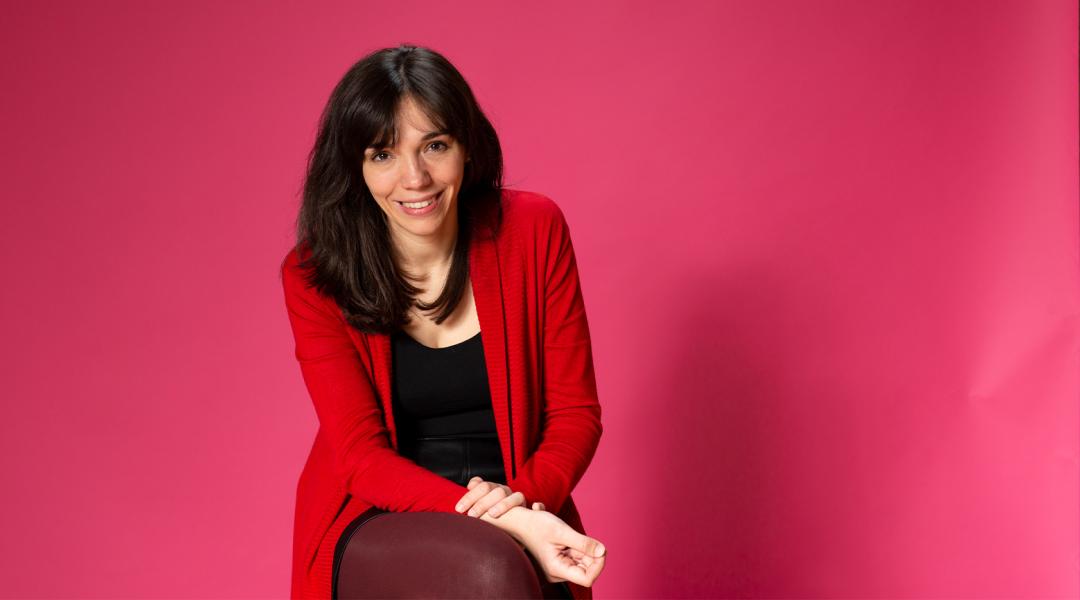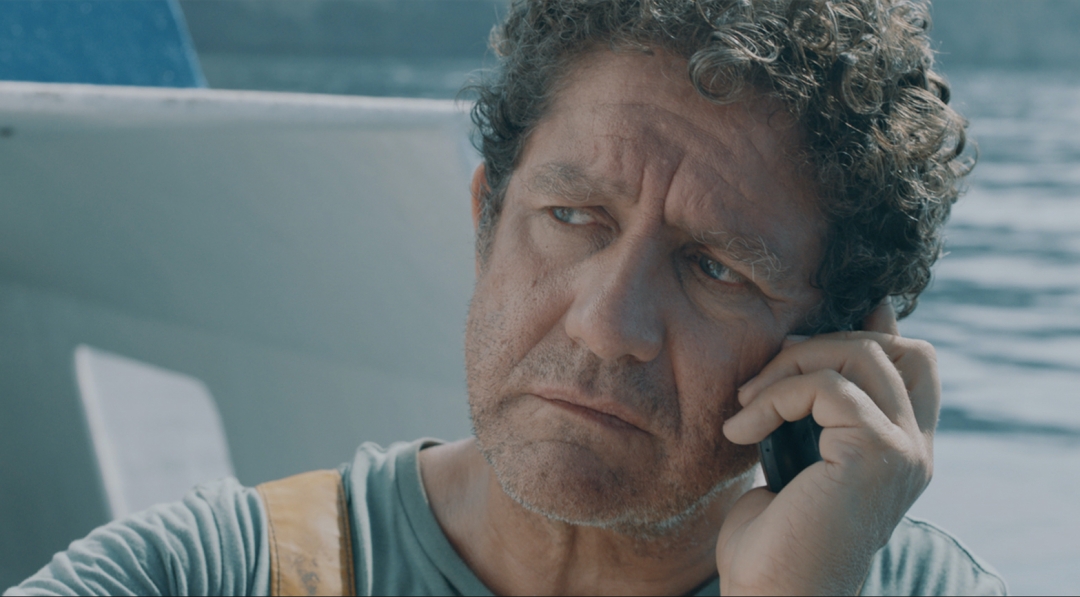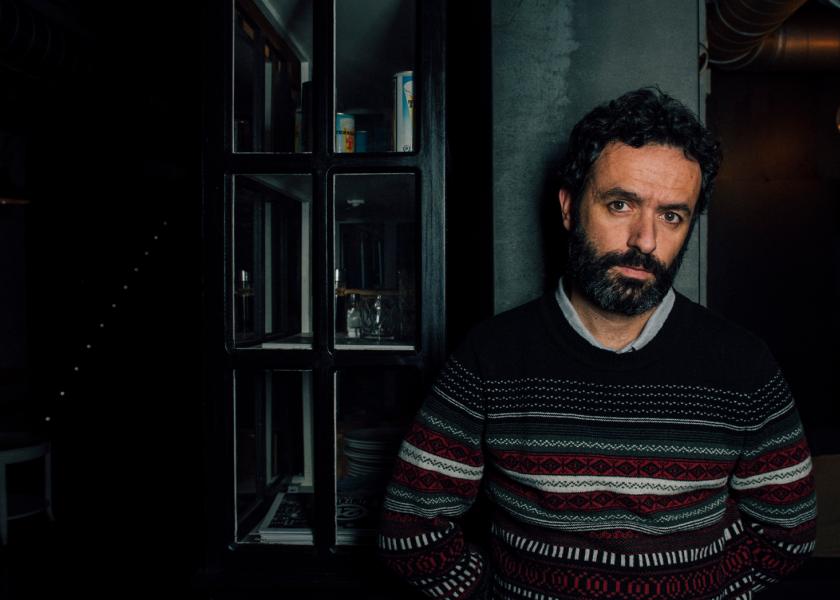Belén Sánchez-Arévalo
Stories in Tiny Flasks

The short is doing wonderfully. Ask Belén Sánchez-Arévalo, short writer with over two hundred awards in her cabinet. The latest being Best Spanish Fiction Short / Iberia Talent on Board Award for Best Spanish Script at the 9th edition of the ABC Spanish American Short Festival.
Ever since she was little, Belén Sánchez-Arévalo (Ciudad Real, 1982) knew she wanted to be a writer. But when she discovered cinema, she decided to take her passion in that direction. In her own words, “every time I wanted to write a novel, I ended up writing a script. I just can’t help it.”
In ten years as a professional, Belén Sánchez-Arévalo has specialised in writing mostly for short-films, which is, in her opinion, a format that is living a marvellous moment in Spain. “The truth is that Spanish shorts have always been of great quality, with films that are enjoying quite a bit of success and are recognised not only in Europe, but worldwide. In fact, many of the directors who do feature films still make shorts, because it’s a format we, as creators, like a lot.” There’s no doubt that the short’s good health is enhanced by the new streaming platforms, which are increasingly facilitating viewing and distribution, bringing a somewhat forgotten format that was exclusive to film festivals to a broader audience. Moreover, as the writer puts it, “some platforms have started producing as well. I’m sure that once they realise the possibilities this format has, they will keep believing in it.”

Actor Pedro Casablanc in a still from the short Uno, by Javier Marco and Belén Sánchez-Arévalo
Sánchez has won over two hundred awards on international festivals, with titles such as Uno (One), El vestido (The Dress), Ella (Her), Classmate, Casitas (Grown Ups), and Voluntario (Volunteer), which she’s created alongside director Javier Marco, her professional and life partner. “When I’m writing, I already know what Javier’s going to do with it,” she says. Soon they’ll be visiting the festivals once again with their latest effort, La cara (The Face). “It’s about a meeting between two characters, but I can’t say anything more about it for now.”
While the couple’s passion is shorts, come May they will start shooting their first feature film, Josefina, in a partnership with public broadcaster Televisión Española, and starring Emma Suárez and Roberto Álamo. The film is currently in pre-production stage and will probably premiere at the end of this year or the beginning of the next. “This script took me about a year to write. While writers and directors can learn a lot from writing shorts, I don’t think the short as a format is a springboard for full-length— it’s a format that stands on its own feet,” says Belén. “And even though we’ve started doing a feature film, I’ve no intention of quitting shorts.”
“While you can learn a lot from writing shorts, I don’t think the short as a format is a springboard for full-length— it’s a format in its own right”
But are there any differences in writing a short or a feature film? “Yes,” says the writer emphatically. “When writing a short-film, I always part from a situation or scene, because it’s easier to tell a story if it only plays out in one place or specific time frame. In a full-length you have more time to develop the characters and tell a more complex story. The short gives me the option to tell a big story in very little time, like in Uno.”
Because, in just ten minutes, Uno, an internationally renowned film that has won two Oscar-qualifying festivals and, recently, the Award for Best Spanish Fiction Short / Iberia Talent on Board Award for Best Spanish Script at the 9th edition of the ABC Spanish American Short Festival, tells a dramatic tale that starts with a mobile phone floating in the sea in a watertight bag and going off. Starring Pedro Casablanc, it’s a fictitious story that could be perfectly real. “We wanted to put a name and a story to one of the people who die in the Mediterranean every day and who we see and hear about on the news. We know our story is kind of surreal, and that it’s not going to happen, but our objective was to give one of those numbers a life, a name.”
“Something mundane like traveling on the train is a source of inspiration to me”
Precisely that mix between reality and phantasmagoria is one of the defining characteristics of her style, which Javier Marco knows how to pick up on perfectly. “I really enjoy taking things from reality and give them a surreal twist. I always take a good look at people I see during the day, that’s where I get my ideas from. Sometimes I mix up several stories I have in my head, I don’t follow a fixed idea. For example, something mundane like traveling on a train is a source of inspiration to me. I like going to coffee shops to write—I need a space with lots of people in order to work. Silence distracts me. The whole writer in a coffee shop thing might sound like a cliché, but in my case it’s just true.” In fact, the cantina of the Matadero film house in Madrid is one of her favourite places to write. “I’m a vegetarian, and my friends joke that it’s because the spirits of the animals are there [the Matadero is located on the premises of an former slaughterhouse], and they know I’m not going to eat them; they’re just an inspiration to me,” says Belén, an avid fan of Alexander Payne and Luis García Berlanga, but also of conventional titles like Zemeckis’ Back to the Future, the script of which she adores. “I like all kinds of movies, from tiny films to huge stories.” Because in cinema, size doesn’t matter.



